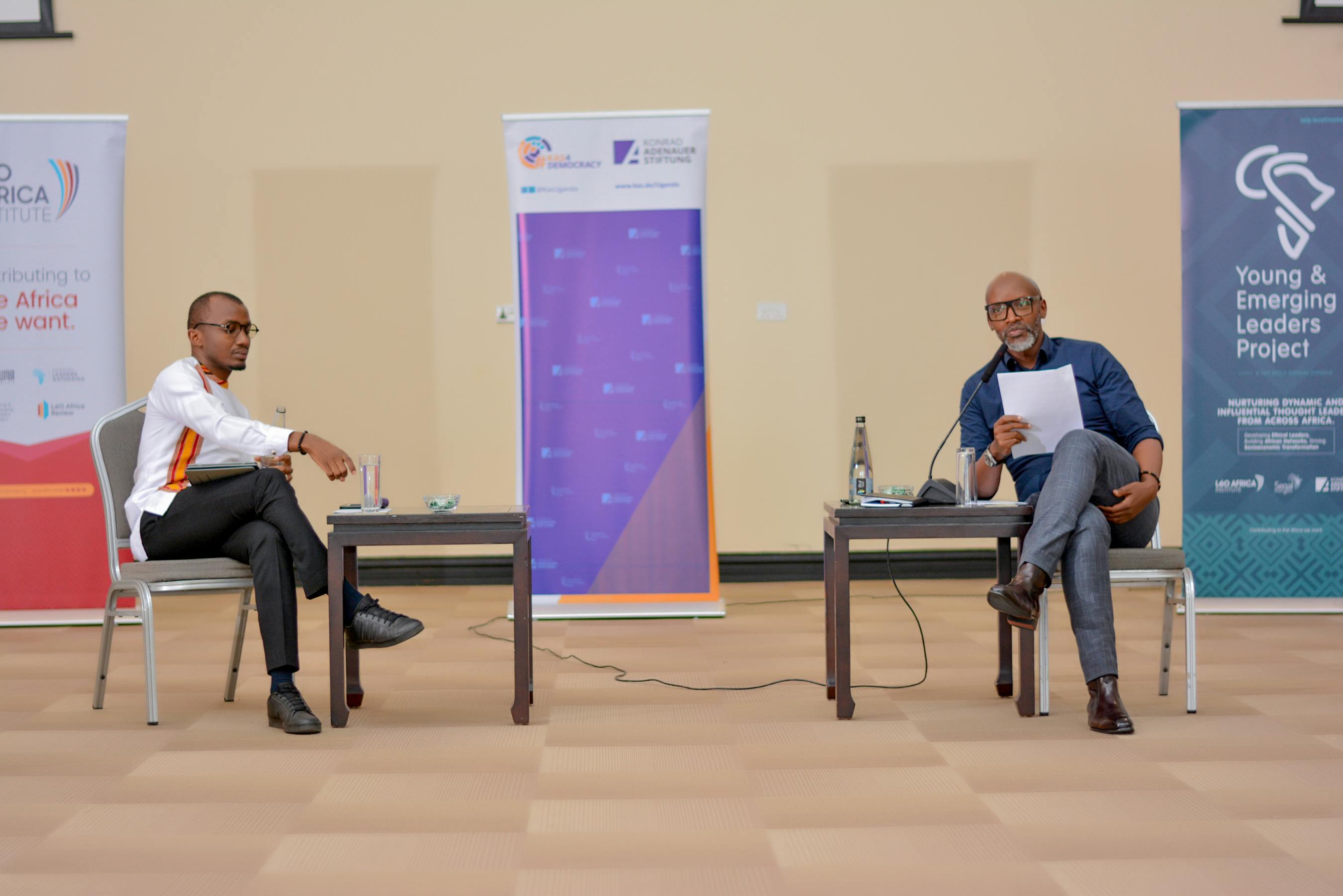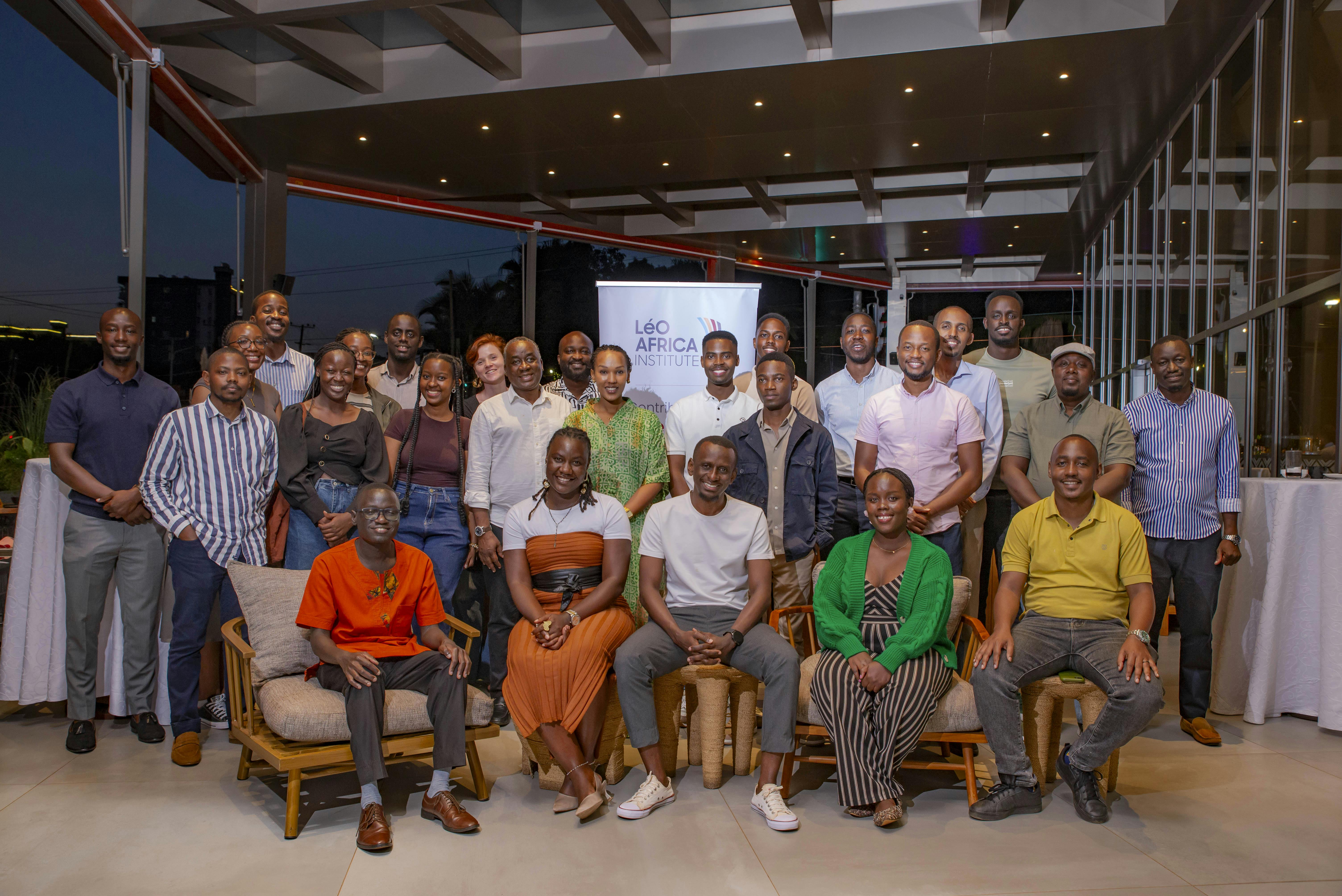Good afternoon, everyone. It’s an honor to be here with such a dynamic community of emerging African leaders. Today, I want to talk about leadership not as a destination but as a journey — a lifelong discipline of self-awareness, adaptation, and service. When I was requested to speak at this event – I was asked to explore four key themes that the organisers felt would shape the conversations you have had today: (1) Leadership as a lifelong discipline, (2) Balancing ambition, values, and humility in life transitions, (3) The burden of influence and managing visibility, and (4) What Africa and the world need from you --- this generation of leaders. So I want to share my thinking and some reflections on these ideas, with the hope that some of these reflections might be useful to you on your leadership journey.
1. Leadership as a Lifelong Discipline
We often talk about Leadership as an externally projected phenomenon – Leadership is about others, it’s about influence, control, inspiration – all these attributes that one has on others.
But the foundational idea about leadership is that it starts with leading yourself. Before you can lead others, you must learn to lead the person you see in the mirror every day. Ronald Heifetz and Marty Linsky, in their work on adaptive leadership, emphasize daily practices for sustaining leadership: “get on the balcony,” seek confidants, manage your hungers, and “anchor yourself” with purpose. What does that mean? It means recognizing the normal human hungers we all have — desires for power, affirmation, intimacy, even delight — and learning not to be driven by them uncontrollably. Heifetz reminds us that every person needs some degree of power, importance, and connection; none of these are evil or unimportant. Yet each can “get us into trouble” if we lack “the personal wisdom and discipline required to manage them”.
Concretely, managing your hungers means being honest with yourself: Do I crave the spotlight? Do I yearn for praise? Am I seeking personal gain under the guise of public service? By noticing these impulses without letting them rule us, we can stay focused on the true purpose of leadership — bringing positive change in service of others. We lead ourselves by aligning our actions with our deepest values and staying grounded. As leaders, we hold an internal compass. When turmoil strikes, it is that compass is what keeps us on course, not the shifting winds around us.
Adaptation is at the heart of this self-leadership. In times of change and uncertainty — which, let’s be honest, is always the case in a fast-changing world — it’s futile to fight external currents. We cannot control the tides of history or technology or even time itself. Our only choice is to control ourselves: who we become and how we show up. This is why I say: focus on you, not on the environment around you. If it’s you’re calling to be part of the change that your environment needs, that leadership calling will find you. But first, you need to work on you, discover who you are. Once you answer that, you can evolve with circumstances instead of being buffeted by them. You can sail through the storm because you know your own sails and anchors.
What about adversity? Isn’t growth supposed to be positive and easy? In fact, I’ve come to believe the opposite: turbulence and adversity are the funnel we must go through to be moulded into the silverware we are meant to become. Imagine a funnel: wide at the top, narrow at the bottom. We enter broad and raw; as challenges press in on us, we’re squeezed and shaped, emerging stronger, sharper, more refined at the end. This is not accidental — this is how character and leadership are forged. Growth without challenge can be comfortable but shallow.
True growth often requires going through discomfort.
Leadership is not a one-time achievement but a daily discipline. We must consistently ask ourselves: Am I living my values? Am I learning from what happens to me? Even in the most uncomfortable situations – we need to ask - am I growing through the trials that come my way? Over decades of working with leaders across Africa and beyond, I’ve seen that the ones who thrive are those who treat leadership as an ongoing practice, not as a badge of status.
2. Balancing Ambition, Values, and Humility in Life Transitions
The second theme touches our ambitions and our values, especially during big life transitions. Each of us is ambitious — otherwise, you wouldn’t be here. Ambition is good; it makes us reach for the stars. But it must be balanced with humility and anchored in our values.
Transitions in life — whether a new job, a growing organization, marriage, parenthood, or shifting cities — are constant. They come from within and without. Internally, as human beings we naturally evolve over time in our beliefs and outlook. Externally, life forces us to change all the time: projects end, contexts change, economies shift. We have only two choices: either run from change or run with it. The better path is to run with it — to consciously navigate transitions rather than be blindsided.
I want to connect transitions to adversity. Facing a transition often feels like adversity — it’s the unknown, a challenge. But overcoming these challenges builds grit and resilience. It sharpens our problem-solving and critical thinking. It builds character. Every time you say, “I faced that, and I survived,” you expand the range of what you know you can handle. So transitions will find you — the question is, in what state will they find you? Will it be someone unsure and isolated, or someone confident in their values and supported by a community?

Having personally faced some dramatic transitions myself – I would like to share some reflections of how to manage these. First, confront reality where you are. What are your fears? Your skills? Be brutally honest with yourself. If you’re worried about an impending change — say, taking on a bigger role or starting a new venture — write down your concerns and compare them to your known strengths. Get comfortable with that reality, not by avoiding it, but confronting it.
Next, explore avenues for change incrementally. Don’t expect to overhaul everything at once. Set small, clear goals. If you lack a skill, take a course. If you need advice, reach out to a mentor or peer — but be clear about what help you need and why.
Find people who will push you forward and keep you accountable. Find a support system, even if small, you will need it. These are the people who will root for you on bad days and celebrate with you on good days.
Finally, anchor in your values. Know what you stand for. The YELP fellowship has consistently trained you to do this: when you know who you are, you can weather any storm.
When leadership roles expand, there will be temptations: more money, more power, more recognition. Without humility and values, these can become mirages that pull you off course. Humility keeps you grounded. It allows you to recognize your own weaknesses and learn from others. Ambition propels you, but humility grounds you. As I have always reminded many of you in this network in our trainings and discussions: “Know what you know, and most importantly – know what you don’t”. The minute you think, “I have all the answers,” that’s when you stop leading and start fading. Stay humble, and teachable.
Life transitions may be inevitable, but your response is your power. With ambition tempered by humility, and a firm grip on your core values, every transition becomes not just a challenge but an opportunity to deepen your leadership.
3. The Burden of Influence and Managing Visibility
By now, many of you have built platforms and influence — whether through your work, your communities, or social media. Being part of this YELP network already signals that people respect your voice. Influence is a gift, but it comes with weighty responsibilities.
First, reflect on how you got here. What did it take to build your credibility? Hard work, yes. But also humility, help from others, and a clear purpose. Don’t forget the roots of your influence — they are usually in trust and authenticity. Second, consider what it takes to protect that influence. Influence can be fragile; it can slip away if you betray trust. The biggest threat to any leader’s influence is the ego. The moment we start believing our own PR, we can grow careless. I’ve seen it happen: once we mistake followers for friends, or imagine we’re indispensable, we lose perspective.
Think of yourself as a custodian, not a celebrity. Leaders in the limelight — especially today, with social media — can easily become performance-oriented instead of purpose-driven. Every post, every speech, is on display. That means millions watch not just what you say, but how you behave. The danger of ego is that it can make us act out of self-interest, or silence doubt and criticism.
Remember that influence amplifies both strengths and flaws. If you have a blind spot, it’s magnified.
So to manage this visibility, be intentional. Use your platforms to highlight others, to elevate important issues, and to foster collaboration. Avoid the trap of excessive self-promotion. As I’ve seen on media, leaders who constantly tout themselves burn out their audience. Instead, let your integrity speak. If you make a mistake — own it publicly. Apologize sincerely. Such humility doesn’t weaken your influence; it often strengthens it through trust.
4. What Africa and the World Need from This Generation’s Leaders
Finally, let’s turn our gaze outward, to the big picture: what does — your generation — have to offer to Africa and the world? The challenges we face as a continent are immense and well-known: rapid technological change (think AI transforming work and education), persistent poverty and inequality, political and economic volatility, climate change, and so on. You encounter these issues daily in your communities and professions. You don’t need me to lecture you on these; you’re already on the front lines addressing them.
What you may need to consider is this: beyond the problems themselves, do you know who you are in the midst of solving them? Do you know what values define you and what you stand for? The world needs leaders who are authentic and whole — leaders who know their own hearts even as they tackle big problems. The Center for Creative Leadership puts it well: authentic leadership is the healthy alignment between a leader’s internal values and beliefs and their external behaviour.
Africa needs leaders who live their values openly — leaders of integrity who don’t just pay lip service to transparency, equity, or innovation, but embody them. We need leaders who can adapt to change (that adaptation is essential), and hold fast to core principles of justice and service. We need leaders who refuse to sacrifice long-term progress for short-term gains.
I believe your generation can be that leadership. You have the knowledge and tools that many of your contemporaries do not have — access to information, global networks, and unprecedented opportunities for collaboration. Yet knowledge alone isn’t enough. The real key is values-based action. In the words of the YELP spirit: reflect on who you are, reconnect with your purpose, and recommit to action. You cannot improve your world if you yourself aren’t whole.
So, what does this generation’s leadership look like? It is resilient, adaptive, and authentic. It is humble enough to collaborate and strong enough to persevere. It is ambitious for positive change but grounded in self-knowledge. And importantly, it is continuous: each one of you commits to leading yourself every day, even after this reunion ends. Leadership isn’t a title you hold only at meetings or events; it’s how you choose to show up in every conversation and decision.
In closing, I encourage each of you to recommit to your own leadership journey. Keep adapting, keep learning, and keep reflecting on your values. The next leadership crossroads — inevitable in our lives — will find you ready if you have done this work in advance. And remember: your generation carries the torch for Africa’s future. The problems are great, but you are capable. As we often say, Africa is young — and that means you are Africa’s present, not just its future.
So lead boldly, but humbly. Use your influence generously. Stay true to yourself and to those you serve. The road will be long and sometimes steep, but believe that the funnel of adversity is shaping us to be exactly what we need to be. We believe in this generation of leaders, and I am excited for what we will achieve together.
Thank you, and let us go forward from here, renewed and steadfast, to build the Africa and world we all want.




